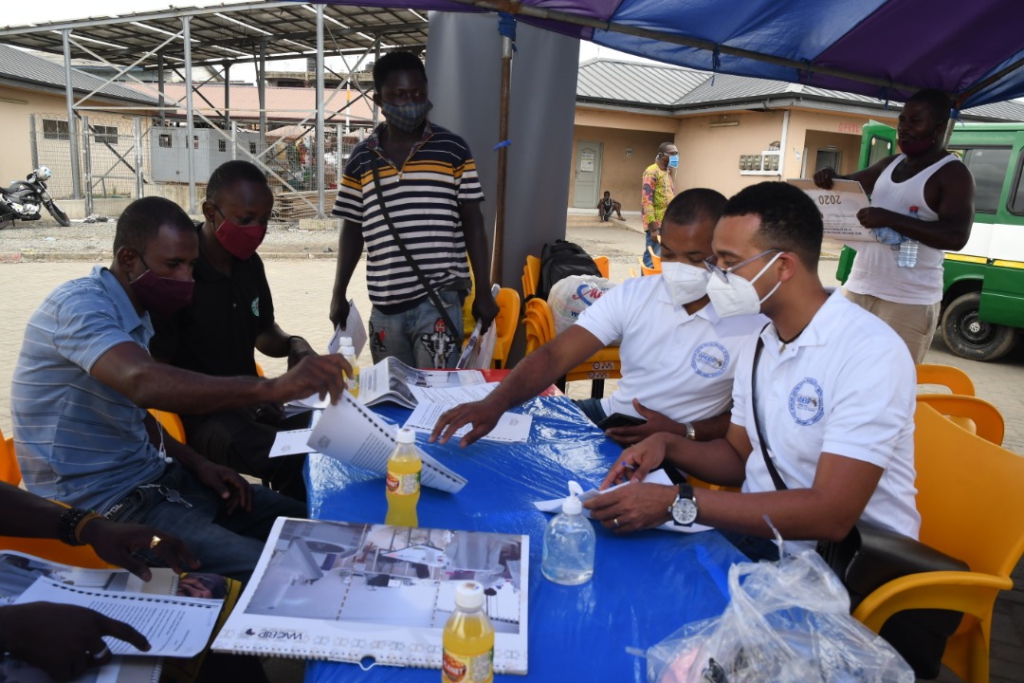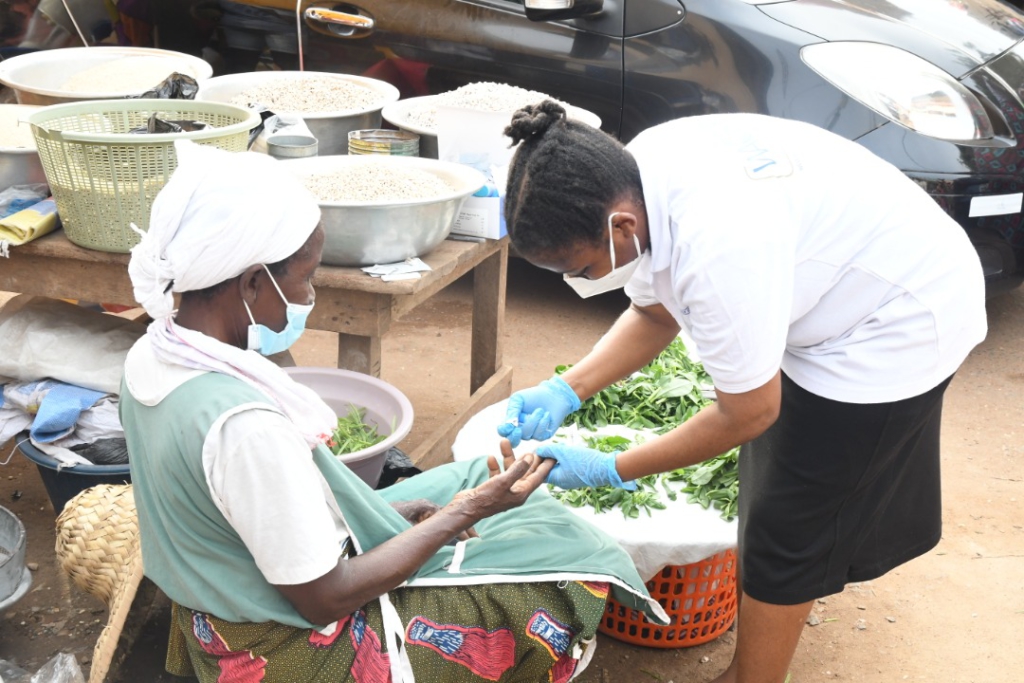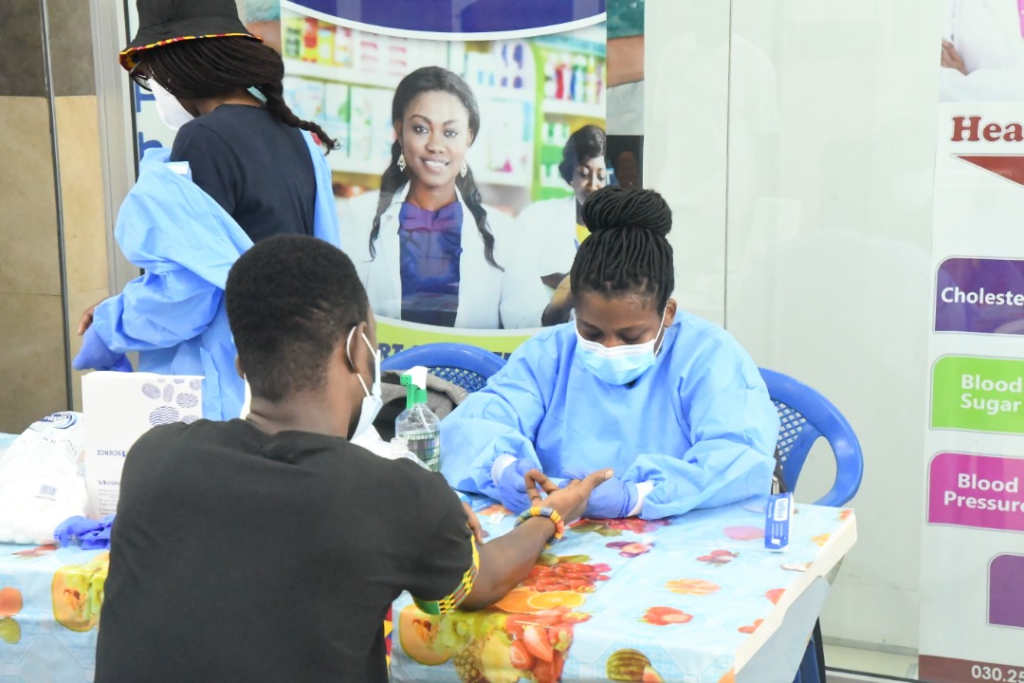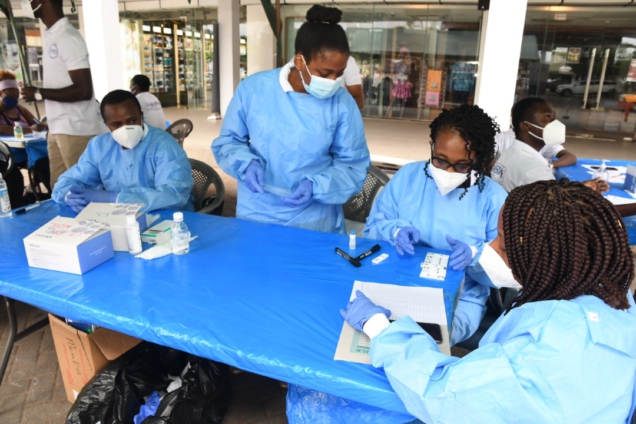An international consortium of researchers has come together to better understand why COVID-19 was milder in some parts of the world.
Supported by £3.1 million from the Wellcome Trust, the newly-created WWW Consortium links three leading studies in West Africa, the West Indies, and West London, each tracking how both the virus and our immunity have evolved against COVID-19.
In order to better understand the factors impacting COVID-19 outcomes in these regions, researchers will compare prospective samples and data from vaccinated individuals.

They will assess a variety of immune conditions and medical histories, including prior exposure to SARS-CoV-2, other human and animal coronaviruses, as well as other infectious diseases like malaria.
The consortium will provide evidence to help unpick patterns seen so far in different areas of the world. For example, West Africa experienced large undetected SARS-CoV-2 transmission, but with negligible impacts on mortality.
On the other hand, the trends observed in the West Indies were similar to the UK, despite countries like Jamaica having a much lower vaccination rate.
They hope their work will be useful in informing future pandemic response in regions currently underserved by both research and surveillance capacity.

David LV Bauer, who heads the RNA Virus Replication Laboratory at the Crick, will lead the consortium. He said: “While the initial pandemic response to SARS-CoV-2 is scaling down, ongoing research and monitoring will be essential to understand this virus, which will continue to evolve.
“We wanted to build a global consortium so that research and surveillance capacity continues to grow internationally.”
The consortium will strengthen research connections made during the pandemic, as virologists and public experts collaborated to piece together a picture of viral evolution globally.
The project also builds on the success of the Crick African Network (CAN), which established strong ties between African institutions and the Francis Crick Institute.

Emma Wall, UCLH Infectious Diseases consultant and Senior Clinical Research Fellow for the Legacy study at the Crick, said: “Connecting our London-based study with research projects in Africa and the West Indies will help us not only understand differences across countries, but also how to best protect people based on shared characteristics.
“And as SARS-CoV-2 continues to evolve, we will ensure we are prepared with excellent channels of communication and information sharing globally.”
Gordon Awandare, Director of the West African Centre for Cell Biology of Infectious Pathogens (WACCBIP) at the University of Ghana, said: “Pre-exposure to other infectious diseases like malaria is much more common in West Africa, and we think that this can increase the tolerance of the immune system.
“In some cases, this might be helpful, prepping the immune system for future infections and decreasing the chance of severe illness. But it might also mean that vaccines are less effective and we should consider designing vaccines for specific populations.”
Joshua Anzinger, Senior Lecturer of Virology at The University of the West Indies, said: “Vaccination rates are very low in Jamaica. The Windfall cohort includes individuals amongst the first to be vaccinated. Going forward we will be enrolling both unvaccinated and vaccinated individuals, and monitoring their immune responses to different variants.
“With increased sequencing capacity at our university’s Trinidad campus and more recently in Jamaica, we can now contribute a unique picture of immunity across the West Indies. Crucially we can now untangle the increasing complexity of individual responses to infection, and how these might influence population level immunity against future variants.”
Latest Stories
-
Paris Olympic hopes hang in the balance as Ghana’s 4×100 relay team drops baton at World Relays
3 hours -
Western Regional House of Chiefs commends Bawumia for his humility and respect for traditional authorities
4 hours -
#JustTurned18: First-time voters critical to deciding 2024 presidential election
6 hours -
Video: EC lied that the cost per voter in 2020 was $7.7; it was $12.5 – Bright Simons
6 hours -
Former IGP passes on
6 hours -
Ejisu by-election: Kwadaso MP gave money to EC officials out of goodwill – Ahiagbah
6 hours -
Millennium City: Land owner breaks silence on fatal shooting of soldier
6 hours -
Photos of 2024 Aboakyer Festival
7 hours -
#JustTurned18: I now have an opportunity to use my thumb to bring someone into power – Excited prospective voters
7 hours -
OSP acted as a whistleblower transferring Cecilia Dapaah’s case to EOCO – Sammy Darko
7 hours -
IMF calls for tariff adjustment for energy sector cost recovery
8 hours -
Samson’s Take: Journalists, block the pretentious idiots
9 hours -
Real Madrid crowned LaLiga champions after Barcelona’s defeat at Girona
9 hours -
Daniel Otting Awuah elected SRC President of Ghana School of Law
10 hours -
Lawrence Ati-Zigi signs St. Gallen contract extension
11 hours

